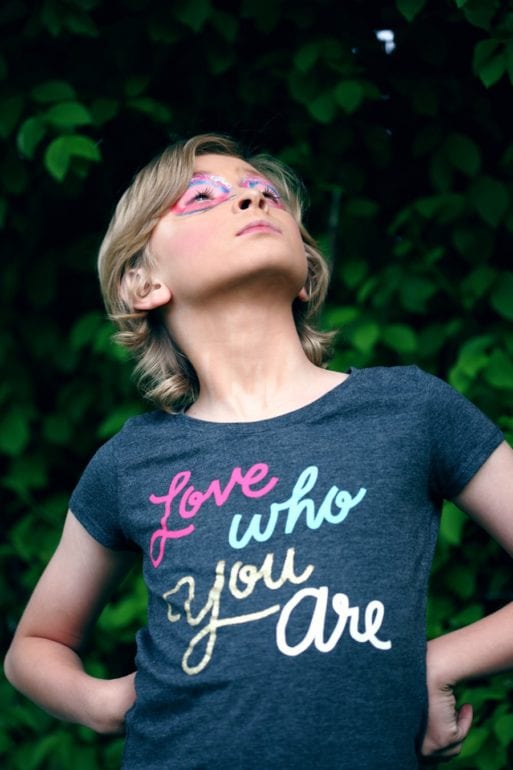You have the power to save a young life.
The largest survey of LGBTQ youth, just released by the Trevor Project, reports that the support of just one adult can save the life of an LGBTQ person between the ages of 13 and 24. Other results also made clear that the optimism inherent in that finding could not have come at a more dire time.
LGBTQ Youth at High Risk for Harm
While previous research already indicated LGBTQ youth are at risk for negative health outcomes and are more likely to attempt suicide, experience homelessness, and use illegal drugs, the Trevor Report verified that 39 percent of LGBTQ youth — and more than 50 percent of respondents who identified as transgender or non-binary — had seriously considered attempting suicide in the past year. Seventy-one percent said that they felt “sad or hopeless for at least two weeks in the past year,” with 75 percent admitting the current political climate has affected their mental health or self-image.

LGBTQ youth experience huge challenges because of how others respond to their sexual orientation or gender identity. This is also true for youth who are questioning their sexual orientation or gender identity, or those perceived as LGBTQ or gender variant by others. Limited research conducted in 2011 by the Institute of Medicine stated that “the disparities in both mental and physical health that are seen between LGBTQ and heterosexual and non-gender-variant youth are influenced largely by their experiences of stigma and discrimination during the development of their sexual orientation and gender identity.” The negative experiences include high rates of physical and emotional bias and violence; rejection by family members and peers; and inadequate support systems in schools, workplaces and communities.
The Power of a Single Friend
Still, as the Trevor Report points out, the support of a single friend can mean the difference between whether or not someone you know survives or succumbs to society’s slings against young LGBTQ people. Chances are you already have a young friend who’s told you about their sexual orientation. ULifeline.org, an online resource for college mental health, suggests ways you can further support your young LGBTQ friend.
 First and foremost, listen and try to empathize with their challenging experiences. Be prepared for a variety of emotions you may feel, such as confusion, surprise and sadness. All of these would be normal responses when your friend gets more deeply into their emotional health issues. Avoid interrupting and remain open to what they’re saying. Try to put yourself in their shoes.
First and foremost, listen and try to empathize with their challenging experiences. Be prepared for a variety of emotions you may feel, such as confusion, surprise and sadness. All of these would be normal responses when your friend gets more deeply into their emotional health issues. Avoid interrupting and remain open to what they’re saying. Try to put yourself in their shoes.
Ulifeline also suggests you further educate yourself about mental illness and the concerns that LGBTQ individuals might have to help you better understand what your friend is going through and know how to help them. You can also mitigate the cultural stigma that exists by refraining from making derogatory comments about LGBTQ individuals. Even jokes further misconceptions, stereotypes and stigma. Finally, speak up when others make comments or jokes about the LGBTQ community.
The Trevor Project, an American non-profit organization that conducted this latest research on LGBTQ youth, was founded by director/producer Peggy Rajski, producer Randy Stone and screenwriter James Lecesne, creators of the 1994 Academy Award-winning short film, “Trevor,” about a gay 13-year-old boy who, when rejected by friends because of his sexuality, makes an attempt to take his life. The group operates the only nationwide, around-the-clock crisis and suicide prevention helpline for LGBTQ youth at 1-866-488-7386.

 Adults Can Help Lessen Suicide Risk in Young LGBTQs
Adults Can Help Lessen Suicide Risk in Young LGBTQs



 “Help Me, Helen”
“Help Me, Helen”

 “As Tears Go By” by Marianne Faithfull
“As Tears Go By” by Marianne Faithfull














